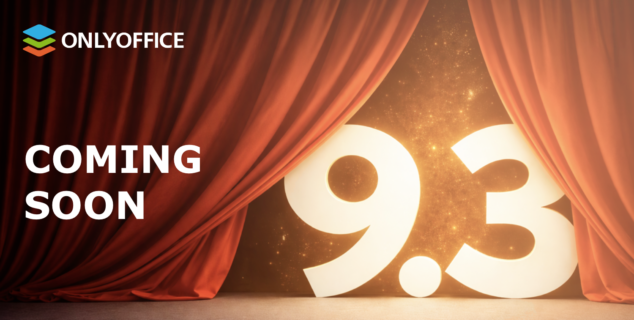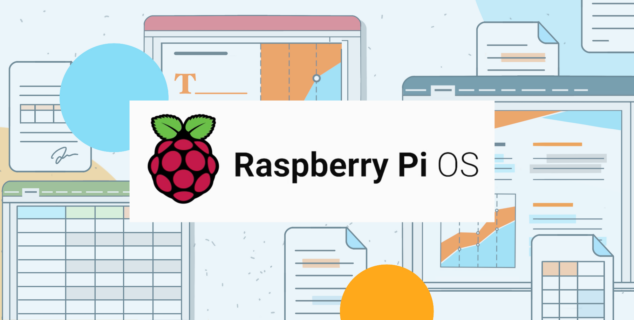10 tips on how to study effectively
Knowing different learning strategies and using the right tools are really important to get the most out of our studying. Obviously, the ways of studying will vary depending on the type of subject we have to learn and also depending on the type of test or exam we have to do. In this article, you will find 10 useful tips on how to study effectively getting to know the basic principles of self-organisation and psychological techniques, and how to use modern technology.

Having a good memory is not always enough to succeed as a student. If you want to know how to study better and prepare for your exams with less effort, you’ve come to the right place. Take a look at the tips below and discover some really useful insights into what can help you to achieve your goals and become a good learner.
Tip 1. Take your time and organize your studying schedule
As any other activity, studying shouldn’t be chaotic. You will hardly achieve success if you study once in a while when you have inspiration. This is hard work, and you need to have a comprehensive plan to get it done. If you are good at time management, you will be able to reach your learning goals with ease.
First of all, you need to understand what information you have to learn and what tasks to do. Create a schedule to keep a reasonable balance between your study and your social life. Don’t study for hours without breaks and rest at least 10 minutes every 50 minutes dividing your study load into blocks. Take notes of the progress you make and make sure you take your time to complete assignments and other tasks. This way, you can control your study pace and plan ahead.
If you have a comprehensive study plan and stick to it, it will motivate you to study better as you will have a visual confirmation of your progress.
Tip 2. Underline and highlight important information
Underlining key concepts when you learn important information helps you to identify the main ideas at a glance and keep them in mind. It also allows you to make connections between different terms in order to create a concept map afterwards. When making outlines or summaries, you learn to extract the most important points and associate them with what you already know.
Try to write down all key concepts and notions, and revise them from time to time. Ideally, you should revise everything you learn at class when you get home. Underlining and writing down key concepts will help you to memorize important information more easily.
Tip 3. Get rid of everything that might distract you
It sounds obvious, but when you study, you should dedicate your time to studying. If there is something that can distract you during the process, you may not achieve your learning goals.
That’s why it’s recommended to prepare your study space beforehand so that when you are concentrating on the first page of your coursebook, there are no distracting elements around you. Doing this before you start studying will help you avoid temptation once you have started, and will also prevent it from being a frustrating experience from the first few minutes.
The most common distracting things are social media, TV, mobile phones and other devices, pets, noisy neighbours and other elements of your day-to-day life. Try to make sure none of these will distract you when you learn but don’t worry if there is something that you can’t control.
Tip 4. Don’t study alone
You might think that this tip contradicts the previous one, but it does work for many students. Although some find it irritating to study with others, you may belong to those who can benefit from exchanging knowledge and opinions with like-minded people.
Try studying with another person. It’s a great way to keep each other highly motivated and reduce costs because you can use the same learning resources. Moreover, you can test each other by asking questions on course material from time to time and explain the topics you know better. This way, you can study with pleasure and fun, which can be more effective than tedious routine work.
Tip 5. Test yourself to study effectively
This is one of the most effective ways to make sure you keep up with your study plan. Besides, this technique can help you to deal with anxiety and stress before tests and exams. You just need to test yourself by asking questions on the topic you learn to check your knowledge. This way you will know what you fall behind with and what you need to revise once again.
Additionally, testing yourself will help to know how to study better when the time comes for the real exam or test. You will feel more confident when answering the questions you have already answered several times before.
Tip 6. Don’t be afraid of problems and difficulties
Students often face problems when they process a lot of information when preparing for their classes or exams. They can misunderstand something, get similar notions mixed up, fail in finding reliable learning materials for their research and so on. As a student, you should be able to make your problems work for you. Got a low grade? Identify what you have done wrong. Don’t understand a topic? Look up for more information and dig into it. Fall behind with a certain subject? Ask your teacher for help or find a good tutor. Remember that every problem has a solution and don’t allow temporary difficulties to shoot down your progress.
Tip 7. Come up with a reward system
Studying hard can be extremely exhausting for your mental and emotional health. That’s why it’s really difficult to remain motivated for a long period of time. Small rewards during the study process can help you to keep up concentration and productivity. For example, when you finish a task, treat yourself to something delicious, like an ice cream, or listen to one of your favourite songs.
Tip 8. Get enough rest and sleep well to study effectively
Of course, the more you study, the better results you get. However, you don’t have to study too hard eating books from sunrise to sunset. Your brain as well as your body needs rest after hours of studying, so you must regularly have breaks to relax and stretch your legs.
Sleep is another important factor. If you don’t get enough sleep, your cognitive abilities will inevitably get worse. This will result in tiredness, poor memory and loss of motivation. An 8-hour sleep is what you need to study effectively.
Tip 9. Create a virtual collaboration hub
No matter what you study, it’s always recommended to create a centralised virtual environment where you could keep and access all your study-related documents and materials, sometimes together with your classmates. There are many collaboration hubs out there, and ONLYOFFICE DocSpace is one of the best options allowing you to study more effectively. Let’s see how to study better with it.
ONLYOFFICE DocSpace is a secure collaborative platform in the cloud that integrates the functionality of an online office suite with a flexible file management system. Using it, not only can you keep all your written assignments, essays, presentations and notes in one place but also collaborate on them with other people in real time, whether they are students, teachers or tutors.
What makes ONLYOFFICE DocSpace a useful tool for studying purposes is the ability to create rooms. DocSpace rooms are virtual places with predefined access permissions where you interact with other users the way you like. Imagine that you need to create a presentation with somebody else. You can create a collaboration room for this task and invite other participants granting them editing access rights. That’s it. Now you can co-edit the presentation together with other collaborators, exchanging opinions and suggestions in real time.
Also, you can create custom rooms where there are some additional access levels. Imagine that you are doing some research under the guidance of your Science teacher. You want the teacher to give feedback about your work without him/her being able to edit your documents. Just create a custom room for your research and invite the teacher as a reviewer. This way, the reviewer will be able to check your work without changing the contents of your documents.
ONLYOFFICE DocSpace is meant to make document collaboration as simple as possible. You can easily manage rooms according to your needs, create and edit office files (documents, sheets, forms and slides), upload and play multimedia files, invite others for collaboration, access your documents from desktop and mobile devices, and more. ONLYOFFICE DocSpace is available for free, so you can create your own collaborative platform right now and see how well it fits your study habits:
Tip 10. Take advantage of modern technology to study better
Last but not least, here are some other additional software tools that you can use to progress faster when learning:
- ONLYOFFICE Desktop Editors. An open-source desktop office app that can easily replace popular proprietary office software due to its complete compatibility with Word. Excel and PowerPoint files and support for various formats, including PDF, EPUB, FB2 and DJVu. The app is free and works on Windows, Linux and macOS making it possible to create and edit documents, spreadsheets, presentations and forms offline.
- ChatGPT. A language model-based chatbot that finds wide application in education. Students can use it to generate and polish texts, correct grammar and styling errors, find synonyms, translate words and phrases, summarise key points, etc.
- myHomework Student Planner. A digital planner that allows students to keep track of their classes, homework assignments, tests, exams and projects with the help of due date reminders.
- Cold Turkey. A very useful app for those students who get easily distracted and want to boost their productivity. It makes it possible to set a timer during which you are not allowed to access distracting websites, games and even applications.
- AVS4YOU. A set of multimedia processing tools for audio files, videos and images. It can be used to create video projects and presentations with stunning visual effects and stickers.
- Zotero. A must-have app for college and research students who want to create high-quality bibliographies, annotations and academic references with ease. It’s compatible with popular text editors, like Google Docs, Microsoft Word and ONLYOFFICE.
Conclusion
If you put these 10 tips to good use, you’ll soon understand that you’ve learned how to study effectively. Change your study habits for the better and make the most of the studying process with the least possible trouble. Good luck in your endeavours!
Create your free ONLYOFFICE account
View, edit and collaborate on docs, sheets, slides, forms, and PDF files online.


